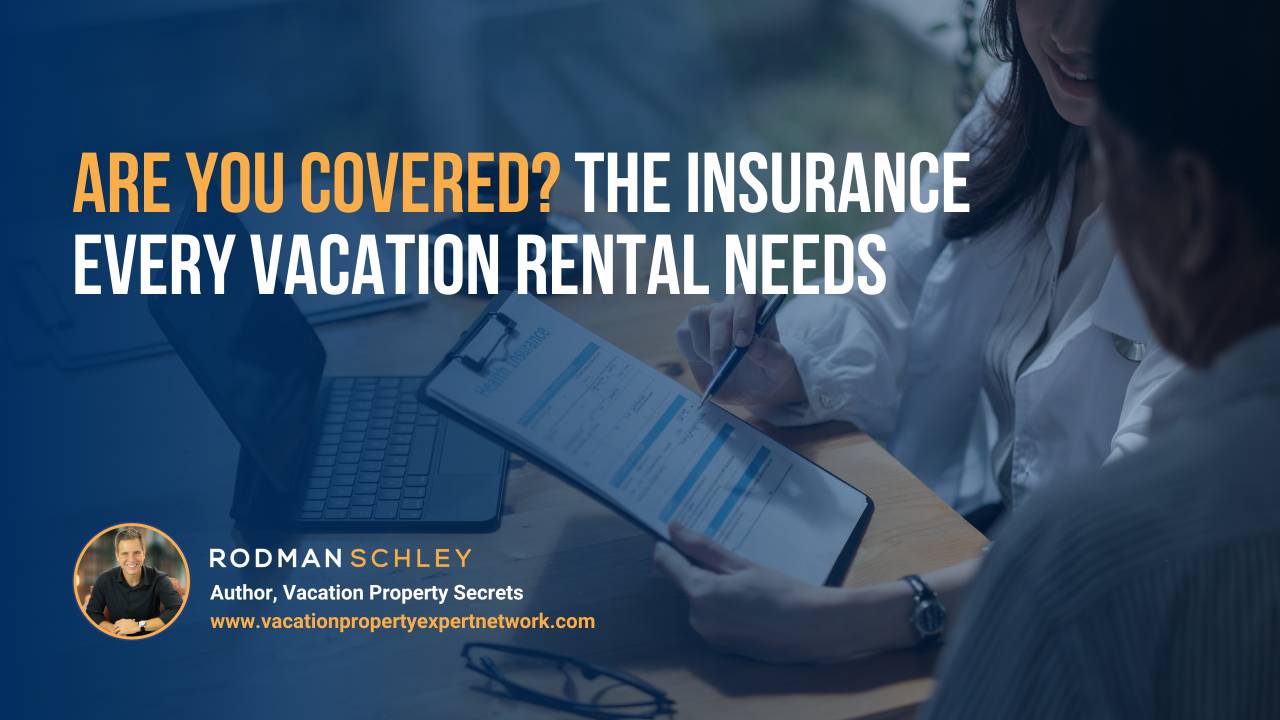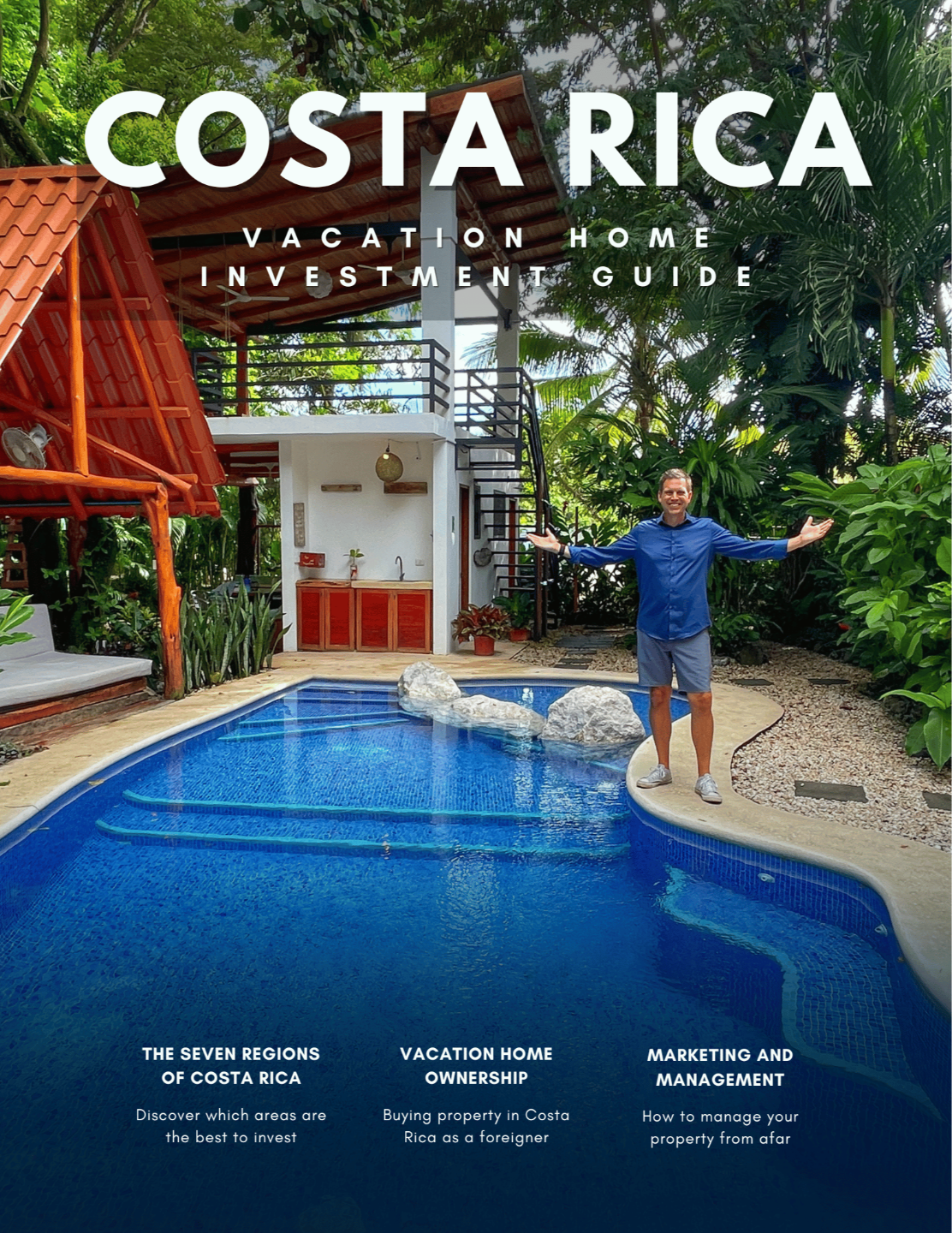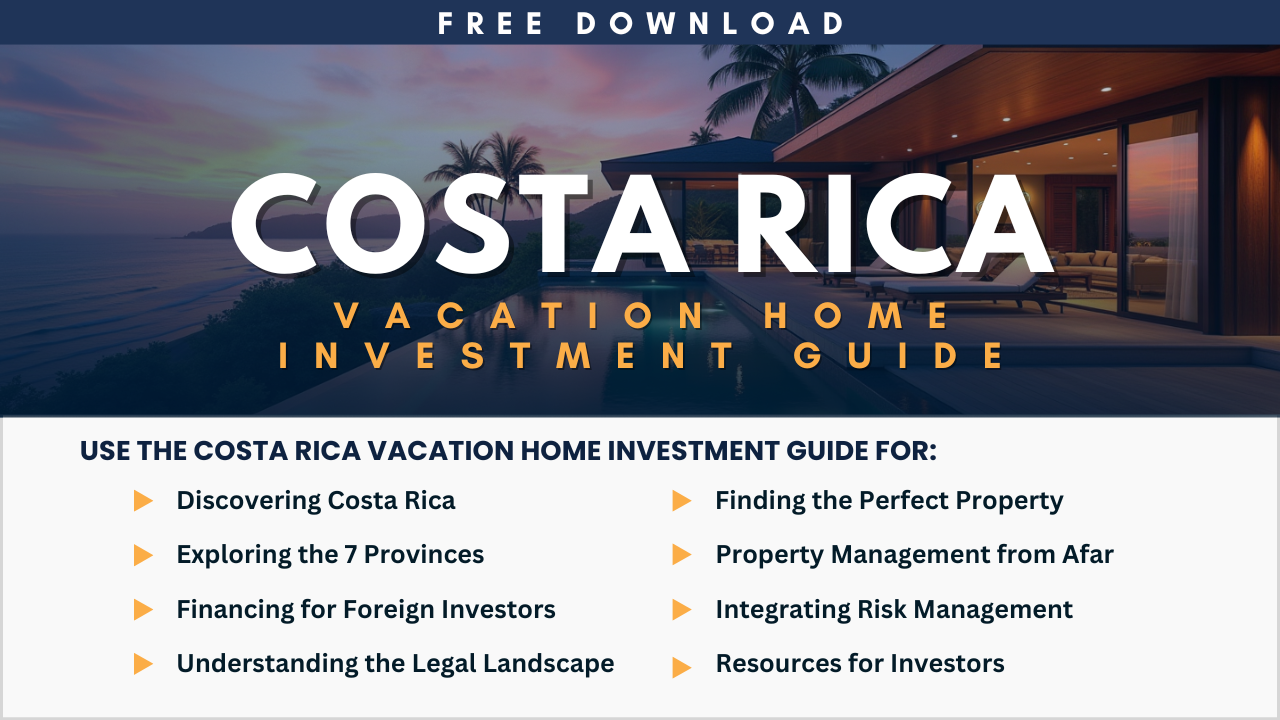
Are You Covered? The Insurance Every Vacation Rental Needs
Running a vacation rental can be incredibly rewarding, offering a steady income stream and the opportunity to meet travelers from around the world. But as with any business, there are risks involved. Whether it’s a guest accident, property damage, or liability issues, the potential for problems is always there. That’s why having the right insurance coverage for your vacation rental is crucial.
Many vacation rental owners make the mistake of assuming that their regular homeowner's insurance will cover their rental property. Unfortunately, this isn’t always the case. Traditional homeowner policies often exclude short-term rental operations, leaving property owners vulnerable to unexpected costs. Understanding what types of insurance you need can help protect your investment, your guests, and your peace of mind.
In this post, we’ll explore the key types of insurance every vacation rental owner should have, why they’re important, and how to make sure you’re adequately covered. Whether you’re new to renting or have been hosting for years, this guide will help ensure that you’re protected against the most common risks that can arise in the vacation rental business.
Why Insurance is Essential for Vacation Rental Owners
Vacation rental insurance isn’t just a good idea—it’s a necessity. Without the right coverage, you could face serious financial consequences if something goes wrong. From property damage caused by guests to injuries that occur on your property, the risks are real, and the costs can quickly add up. Insurance is crucial for vacation rental owners for several reasons.
First, it helps cover property damage, as guests can unintentionally cause damage through accidents or wear and tear. Having the right insurance can help cover the costs of repairs or replacements. Second, liability risks are a concern. If a guest gets injured on your property, they could sue for damages, and liability insurance helps cover legal costs and medical expenses in the event of an accident. Third, insurance helps cover lost income if your property is damaged and needs repairs, as you may lose rental income while the property is off the market.
Lastly, having the right insurance coverage gives you peace of mind, knowing that you’re financially protected. With the right coverage in place, you can focus on providing a great guest experience without constantly worrying about potential risks. Understanding the types of coverage you need is essential to protecting both your property and your business, ensuring you're ready to handle any challenges that come your way.
Short-Term Rental Insurance
Regular homeowner’s insurance typically doesn’t cover short-term rentals, so you need to make sure you have a policy specifically designed for vacation rentals. Short-term rental insurance covers both property damage and liability during the periods when guests are staying at your property.
Here’s what to look for in short-term rental insurance:
- Property Coverage: This will cover any damage to the property caused by guests, including accidental damage to furniture, appliances, or fixtures. It may also cover vandalism or theft, though exclusions can vary by policy.
- Liability Protection: This is critical if a guest is injured on your property. Liability coverage can help cover medical bills and legal fees in the event of a lawsuit.
- Loss of Income: If your rental property is damaged and can’t be rented out, some short-term rental insurance policies include coverage for lost rental income during the repair period.
- Additional Coverage for Accidents or Emergencies: Short-term rental insurance may also provide coverage for unexpected events, such as accidents that occur during a guest’s stay, like slip-and-fall incidents or other injuries.
Make sure your insurance policy is tailored specifically for vacation rentals, as it will provide the protection you need to operate safely and confidently.
Liability Insurance
Liability insurance is one of the most important types of coverage for vacation rental owners. If a guest is injured on your property, whether due to a slip-and-fall, an accident in the kitchen, or any other mishap, liability insurance helps protect you from legal and medical costs.
Here’s why liability insurance is a must:
- Guest Injuries: If a guest trips on uneven flooring or falls in the bathroom, liability insurance will cover their medical expenses and any legal costs if they decide to sue.
- Accidents in Shared Spaces: If you have common areas or shared amenities (like a pool, gym, or parking lot), accidents could happen. Liability insurance will cover you in case of accidents in these areas.
- Legal Fees: Lawsuits can be costly, even if the claim is frivolous. Liability insurance will cover legal expenses and potential settlements, protecting your financial well-being.
- Guests’ Belongings: In some cases, liability insurance can also cover guests’ personal property that’s damaged or stolen during their stay. This is particularly important if you're hosting in a shared building or apartment complex where guests' personal belongings may be at risk.
Property Damage Insurance
Property damage insurance is another vital component of vacation rental insurance. It covers damage to your property caused by guests, as well as any repairs that are needed to restore the property to its original condition.
Things to consider for property damage insurance:
- Guest-Caused Damage: Accidental damage to furniture, electronics, or fixtures is common in vacation rentals. Property damage insurance helps cover the cost of replacing or repairing damaged items, which can save you from having to pay out of pocket.
- Natural Disasters: Depending on your location, you may want to consider additional coverage for damage caused by natural disasters like hurricanes, floods, or wildfires. While basic property damage insurance covers most guest-related damage, natural disasters may require a separate policy.
- Vandalism or Theft: If your property is vandalized or if items are stolen during a guest’s stay, property damage insurance can help cover the costs of replacement or repair.
- Fire Damage: In the event of a fire, property damage insurance can help cover the costs of repairs or rebuilding. Be sure to ask your insurance provider about coverage for fire-related damage.
Damage Deposits and Airbnb’s Host Guarantee
Many vacation rental platforms, like Airbnb, offer their own protection plans or host guarantees. However, these protections are often limited, and they may not cover everything.
Here’s what you need to know about host guarantees and damage deposits:
- Host Guarantee: Platforms like Airbnb offer a host guarantee that covers property damage caused by guests. However, it’s important to note that this protection is limited and doesn’t cover everything (for example, it may not cover liability for guest injuries).
- Damage Deposits: You can also request a damage deposit from guests at the time of booking. While damage deposits don’t replace insurance, they can provide an additional layer of protection if something gets damaged during a guest’s stay. Be sure to outline the terms of the deposit in your rental agreement.
- Platform Limitations: While platform protections can offer peace of mind, they often come with restrictions. For example, Airbnb’s host guarantee doesn’t cover damages caused by certain guest actions or certain types of damage. Always check the fine print to understand the extent of protection.
Relying solely on platform protections can leave you vulnerable, so it’s best to have your own vacation rental insurance that complements these programs.
Flood and Earthquake Insurance (Optional but Recommended)
Depending on your property’s location, you may want to consider additional coverage, such as flood or earthquake insurance. Many standard vacation rental policies don’t cover these types of natural disasters, so you’ll need to get separate coverage.
Here’s why you might need additional coverage:
- Flood Insurance: If your property is located in a flood-prone area, you’ll want to add flood insurance to your policy. Standard property damage insurance usually doesn’t cover flooding, so it’s important to secure this additional protection if you’re in a high-risk area.
- Earthquake Insurance: In earthquake-prone regions, standard insurance policies also typically don’t cover damage caused by seismic activity. Earthquake insurance is a smart investment if your rental is located in an area where earthquakes are common.
While these types of insurance are optional, they can be a lifesaver in areas that are prone to specific natural disasters.
Conclusion
Having the right insurance coverage is essential for protecting your vacation rental business and ensuring its long-term success. From property damage and liability to natural disasters, insurance helps protect both you and your guests from the unexpected. Be sure to research the specific coverage options that apply to your property, and consult with an insurance professional to tailor a plan that fits your needs.
If you're unsure about the right insurance for your vacation rental or need expert advice on protecting your property, visit the Vacation Property Expert Network at: 👉 www.vacationpropertyexpertnetwork.com. We offer valuable resources and expert advice to help you navigate the complexities of vacation rental insurance and ensure you’re fully covered.







